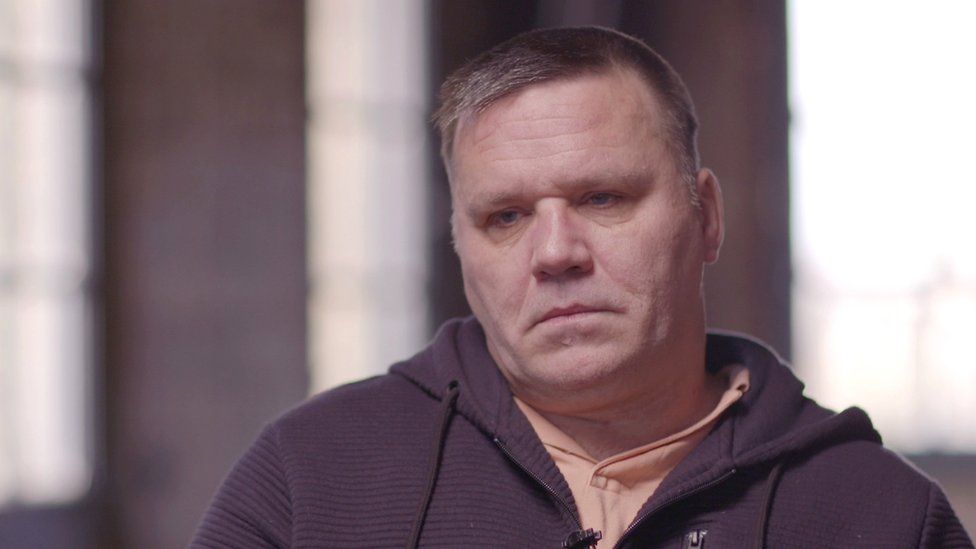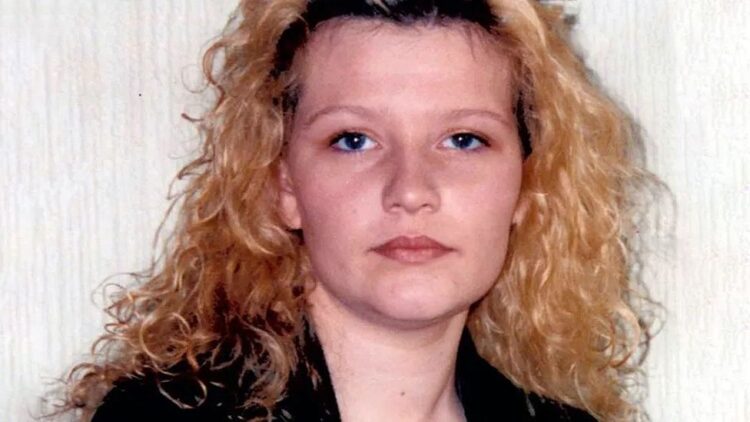By Sheila Mckenzie-
Scotland Police badly failed Emma Caldwell(pictured) after allowing her evil killer to escape arrest despite being warned by sex workers
The trial of Iain Packer at Glasgow High Court heard how Packer was a habitual user of drug-addicted sex workers and lured his victims to remote woods 40 miles away from the city’s red-light district.
Iain Packer, a 51 year-old man, was sentenced to life in prison with a minimum term of 36 years for the murder of Emma Caldwell- a case that has haunted Scotland for nearly two decades.
Sentencing Packer to the second-longest term in Scottish legal history, the judge, Lord Beckett, said the killer was responsible for an “extreme campaign of sexual violence”, preying on the vulnerable and causing “extreme and enduring suffering for so many women and their families”.
Immediately after the verdicts, the Police Scotland assistant chief constable Bex Smith, who is the executive lead for major crime and public protection, apologised directly to Caldwell, her family and “many other victims”, saying they were all “let down by policing in 2005”
Smith issued a profound apology to Caldwell’s family and other victims, acknowledging the systemic failures that marred the initial investigation in 2005.
Caldwell was living in a hostel in Glasgow when she disappeared in April 2005, aged 27. Her naked body was found five weeks later in Limefield Woods near Biggar, South Lanarkshire.
Her mother told the trial that Caldwell had started taking heroin to numb her grief over the death of her older sister. She had been making money through sex work at the time of her death.
A friend of Caldwell told the court that Packer had become “obsessed” with her, following her and attempting to scare away her other clients.
Emma Caldwell’s disappearance in April 2005 sent shockwaves through Glasgow, her last moments captured on CCTV as she walked alone on Butterbiggins Road.
Tragically, her body was discovered in Limefield Woods a month later, marking the beginning of a prolonged quest for justice.
The court heard from a friend of Caldwell’s that Packer had become “obsessed” with her, following her and attempting to scare away her other clients.
He gave six statements to police between 2005 and 2007, but was not interviewed under caution as a suspect.
During Packer’s trial, the court heard a soil sample taken in 2021 from the site where Miss Caldwell’s body was found was a “97% match” with soil found in his blue work van, and Packer was charged by police in February 2022.
Packer denied all the charges , accusing all the women of lying – but admitted during evidence that he indecently assaulted Miss Caldwell

Evil killer: Iain Packer strangled tragic Emma Caldwell her and disposed of her naked body in the woods
The original police investigation was focused on four Turkish men, who were charged with Caldwell’s murder in August 2007, but that case collapsed and the men were released.
Smith made it plain that Strathclyde police, the force that first investigated Caldwell’s murder before Scottish forces were merged into one force in 2013, had failed Packer’s victims.
Ms Caldwell’s family said Police Scotland failed their daughter and the rape victims of Packer due to a “toxic culture of misogyny and corruption”. They have called for a public inquiry.
Their solicitor said on the court steps that police “failed so many women and girls who came forward to speak up against Packer – instead of receiving justice and compassion, they were humiliated, dismissed and in some instances arrested, whilst the police gifted freedom to an evil predator to rape and rape again.
“We now know Packer carried out rapes, sexual offences and assaults some 19 times after Emma’s murder in 2005.
The solicitor added: “Whatever a woman’s job, whatever woman’s status, wherever a woman’s addictions or vulnerabilities, it should never be used as a reason to ignore sexual violence or to treat them as second-class citizens.”It is clear that further investigations should have been carried out into Emma’s murder following the initial enquiry in 2005.
The lack of investigation until 2015 caused unnecessary distress to her family and all those women who had come forward to report sexual violence
The recent conviction of Iain Packer not only brings closure to Caldwell’s loved ones but also serves as a critical moment of reckoning for law enforcement.
Assistant Chief Constable Bex Smith didn’t mince words, conceding that policing in 2005 fell short, depriving Caldwell’s family and numerous other victims of the justice they deserved.
Smith’s apology underscores a broader acknowledgment of past inadequacies, signaling a commitment to learning from past mistakes.
The reinvestigation launched by Police Scotland in 2015 marked a crucial juncture, unearthing crucial evidence and shedding light on Packer’s reprehensible history of violence against women.
Packer’s heinous crimes, spanning over many years, paint a chilling portrait of a calculating sexual predator who callously preyed on vulnerable women.
Smith’s assertion that “time is no barrier to justice” resonates deeply, urging other victims of sexual violence to come forward and seek solace in the promise of support and accountability.
The scale of Police Scotland’s reexamination of Caldwell’s case is staggering, involving the meticulous review of thousands of documents and statements, along with extensive forensic analysis.
The conviction of Iain Packer represents not only the culmination of years of painstaking investigation but also a testament to the resilience and courage of Caldwell’s family and survivors of Packer’s abhorrent crimes.
While the verdict may offer some semblance of closure, the scars left by Caldwell’s untimely demise is a reminder of the enduring impact of gender-based violence.
In the wake of Packer’s conviction, the message from Police Scotland is clear: accountability knows no statute of limitations, and the pursuit of justice remains steadfast, even in the face of the darkest of crimes.




